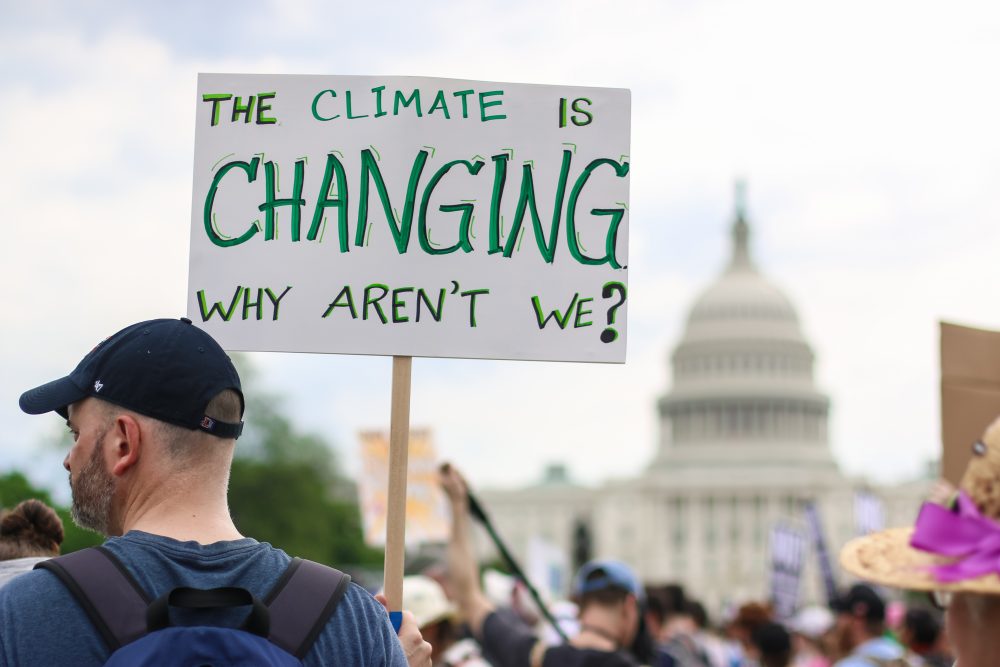Tariffs, inflation, and a streaming surge—see what’s driving consumer shifts this spring.
Redirecting Destruction
Damaging environmental practices both past and present leave many people feeling an urgent call for change. People are actively Apocalypse Proofing to undo destruction and prevent further harm.
While change doesn’t happen overnight, people are taking steps to redirect longstanding destructive habits. People are heavily reliant on cars and trucks which are responsible for over a quarter of US emissions. While weaning off of them will take time, a city government sanctioned effort in Cambridge Massachusetts hopes to shift mindsets with bright yellow warning labels on every fuel pump, slated to happen in the upcoming weeks. Akin to the visual warning labels on cigarette packs, each sticker includes text that warns drivers that the burning of gasoline, diesel and ethanol has “major consequences on human health and the environment including contributing to climate change.”
Beyond warning labels, some brands are ambitiously striving towards climate-neutral transportation through large scale projects. The Volkswagen Group along with the government of Greece are rolling out an electric transport system on the island of Astypalea in the Mediterranean. Over the course of six years, the two parties are aiming for the island’s energy demands to be met entirely through a combination of electrified transportation and charging infrastructure powered by renewable sources such as solar and wind.
Other brands are pushing the envelope with innovative models that make eco-conscious decisions a breeze. H&M’s Singular Society revamps traditional retail operations to not depend on cheap production for profit. In fact, there is no profit motive at all. The members-only service sells products at the cost required to make them. With subscription fees covering the business costs, the brand is able to deliver quality products without the pressure to have an excess supply of product, reducing Earth-damaging over-production, inefficient overhead costs, and discounted inventory.
Brands can redirect destructive habits too. Fashion brands can show that they take climate change seriously by setting up highly visible recycling systems at brick-and-mortar locations that showcase the material breakdown process. Consider options for people to actively participate in the process with discounts for recyclable drop offs.




